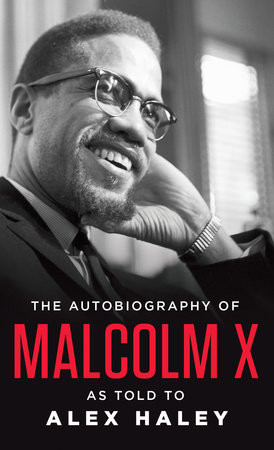The Autobiography of Malcolm X as told to Alex Haley
Ballantine Books
- SKU:
- BKBALLANTINE1002
- MPN:
- 9780345350688
Title: The Autobiography of Malcolm X as told to Alex Haley (Mass Market Paperback)
Author: MALCOLM X / Alex Haley
ISBN: 9780345350688
Publisher: Ballantine Books
ONE OF TIME’S TEN MOST IMPORTANT NONFICTION BOOKS OF THE TWENTIETH CENTURY
The absorbing personal story of the man who rose from a life of poverty and disadvantage to become the most dynamic leader of the Black Revolution, only to have his life cut short by an assassin's bullets.
In the searing pages of this classic autobiography, originally published in 1964, Malcolm X, the Muslim leader, firebrand, and anti-integrationist, tells the extraordinary story of his life and the growth of the Black Muslim movement. His fascinating perspective on the lies and limitations of the American Dream, and the inherent racism in a society that denies its nonwhite citizens the opportunity to dream, gives extraordinary insight into the most urgent issues of our own time. The Autobiography of Malcolm X stands as the definitive statement of a movement and a man whose work was never completed but whose message is timeless. It is essential reading for anyone who wants to understand America.
“Malcolm X’s autobiography seemed to offer something different. His repeated acts of self-creation spoke to me; the blunt poetry of his words, his unadorned insistence on respect, promised a new and uncompromising order, martial in its discipline, forged through sheer force of will.”
—Barack Obama
“Extraordinary . . . a brilliant, painful, important book.”
—The New York Times
“A great book . . . Its dead level honesty, its passion, its exalted purpose, will make it stand as a monument to the most painful truth.”
—The Nation
“The most important book I’ll ever read, it changed the way I thought, it changed the way I acted. It has given me courage I didn’t know I had inside me. I’m one of hundreds of thousands whose lives were changed for the better.”—Spike Lee
“This book will have a permanent place in the literature of the Afro-American struggle.”
—I. F. Stone
 Canadian Dollar
Canadian Dollar
















